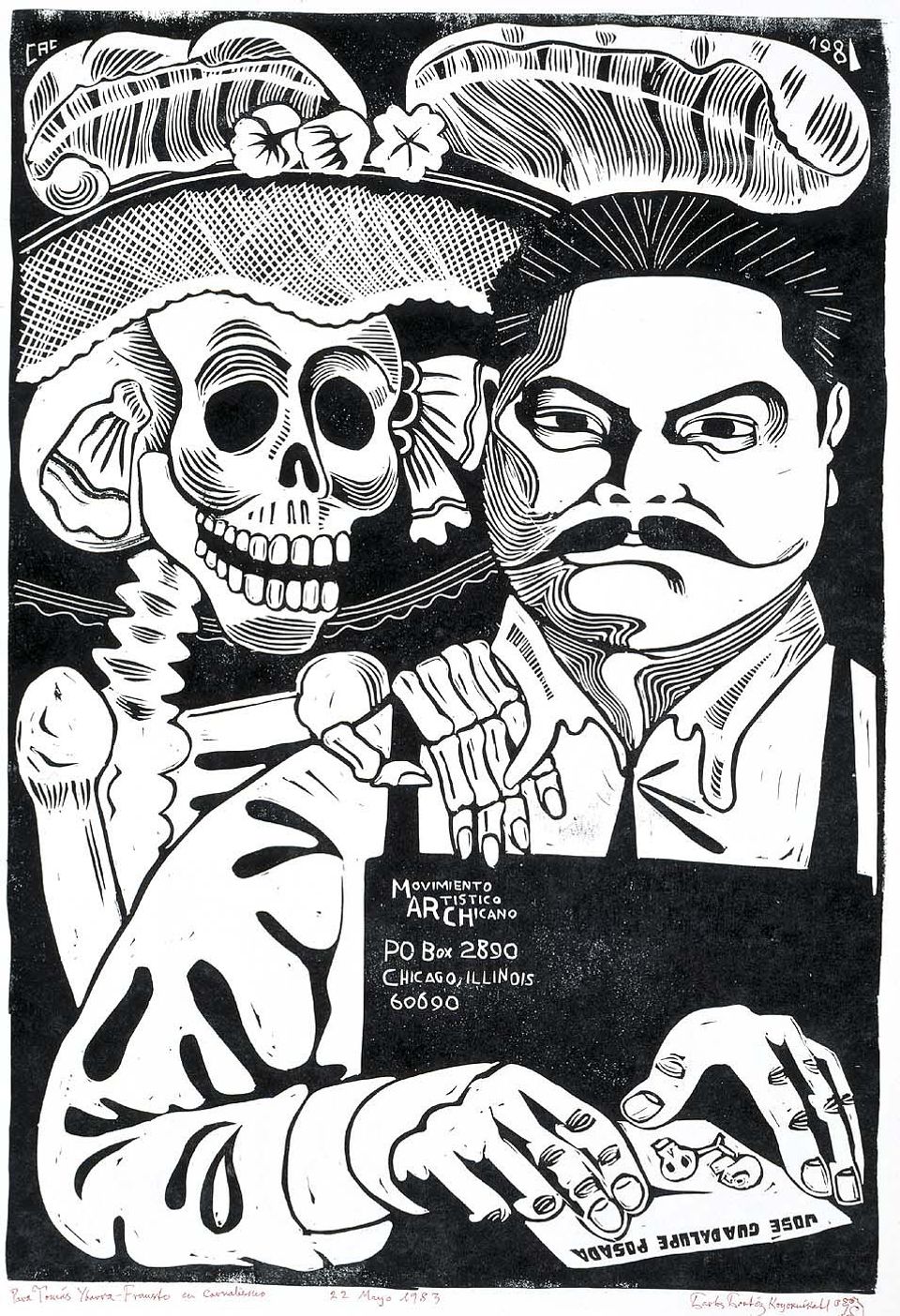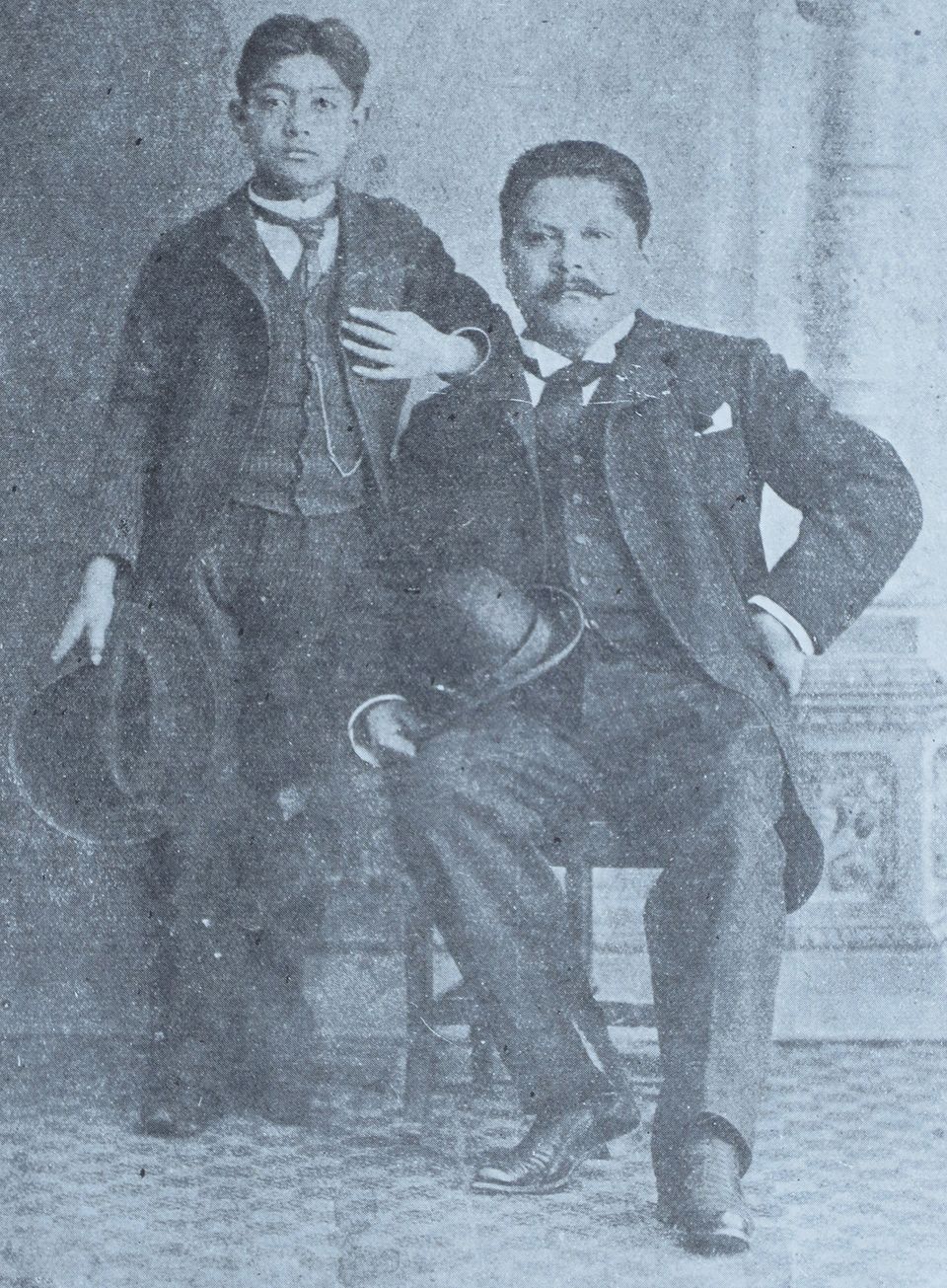The Print

Carlos A. Cortéz, José Guadalupe Posada, 1981, signed 1983, linocut on paper mounted on paperboard, Smithsonian American Art Museum, Gift of Tomás Ybarra-Frausto, 1995.50.9, © 2020, Dora Katsikakis
Carlos A. Cortéz
born Milwaukee, Wisconsin 1923;
died Chicago, Illinois 2005
José Guadalupe Posada
1981, signed 1983
linocut on paper mounted on paperboard
Gift of Tomás Ybarra-Frausto, 1995.50.9
During the civil rights era, Chicano artists admired the work of José Guadalupe Posada, whose cartoons and broadsides expressed political discontent before and during the Mexican Revolution. Cortéz considered Posada his artistic godfather and depicted him on several occasions. Shown frontally with his gaze toward the viewer, Posada holds a zinc plate. Looking over his shoulder is the skeleton diva “La Catrina,” a fancy-hatted figure Posada popularized in his penny broadsides. With Posada and Catrina’s close association with the annual Día de los Muertos (Day of the Dead) observance, Cortéz may also be offering a humorous yet stark reminder of humanity’s transience.
The Person

Courtesy Posada Art Foundation
José Guadalupe Posada
born 1852 – Aguascalientes, Mexico
died 1913 – Mexico City, Mexico
José Guadalupe Posada was a prolific graphic artist who produced an estimated twenty thousand prints, many of which critiqued Mexican politics and society. A major motif in his work are satirical calaveras (skulls or skeletons). Although Posada died in obscurity in the midst of the Mexican Revolution (1910–1920), he was later recognized as the “printer of the people” and influenced generations of Mexican and Chicanx artists. The portrait of Miguel Hidalgo y Costilla in this exhibition was inspired by a Posada print.














